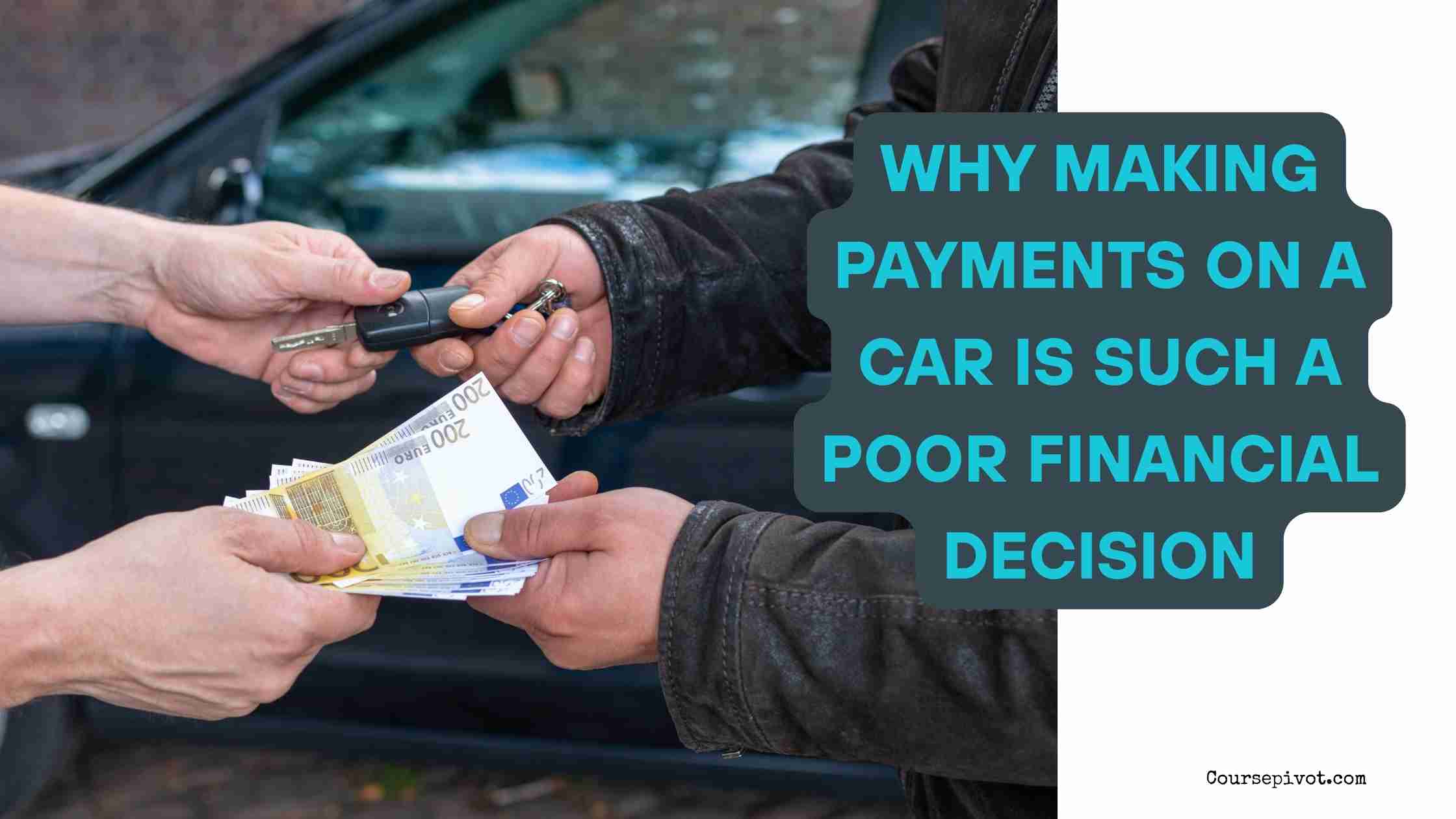
Why Making Payments on a Car Is Such a Poor Financial Decision
If you’ve ever financed a car, you know how exciting it feels to drive off the lot in something shiny and new. But that excitement fades quickly—especially when those monthly payments start eating into your budget. I’ve been there, and I can tell you from personal experience: making payments on a car is one of the worst financial decisions you can make if you’re trying to build long-term wealth.
Table of Contents
Let’s break down why making car payments sounds normal—but often becomes a trap.
Read our top blogs on 5 reasons why my car is overheating or 10 reasons why police should not touch your car’s tail lights
🚗 1. A Car Is a Depreciating Asset
The moment you drive a new car off the lot, it loses value—fast. Most new cars depreciate 15%–25% in the first year alone, and keep dropping after that.
So when you finance a car:
- You’re borrowing money to pay for something that loses value every day
- You often owe more than the car is worth for the first few years
- You’re tying up cash in an asset that won’t grow, unlike investments or real estate
“Would you take out a loan for a stock you knew would lose 60% of its value in five years? Probably not. But that’s exactly what a car loan is.”
💸 2. Monthly Payments Add Up—Fast
Car payments usually look “manageable” at first glance. $400/month might not seem like much, but that’s $4,800 a year—plus interest. And most car loans run 5–7 years now.
Add in:
- Full coverage insurance (required when you finance)
- Higher registration and taxes
- Repairs not covered under warranty
And you’re not just paying for a car. You’re draining thousands from your future net worth every single year—for something that sits in your driveway and loses value.
🧾 3. Financing Locks You into Long-Term Debt
When you make car payments, you’re committing your future income to something that won’t put any money back in your pocket.
That means:
- Less freedom to quit a job you hate
- Less cash to invest
- More stress in tight months
- Less flexibility in your financial life
I remember feeling trapped by my car payment. I couldn’t take freelance gigs or reduce my hours—because I had to make that monthly payment. That’s not freedom. That’s modern-day slavery to consumer debt.
🏦 4. The Interest Isn’t Worth It
Even low-interest car loans still cost you money. And many people don’t get low rates—especially if they have average or poor credit.
Here’s the thing:
You’re paying interest on something that doesn’t earn you anything back. That interest could’ve gone toward:
- An emergency fund
- Paying down student loans
- Retirement savings
- A future home down payment
Financing a car shifts your money from growth to waste.
🔄 5. It Starts a Cycle of Upgrading and Re-Borrowing
Once you’re used to making car payments, it becomes second nature to keep doing it. You finish one loan, and instead of driving that car payment-free for 5 more years, you trade it in and start over.
This cycle:
- Keeps you in permanent car debt
- Encourages buying based on monthly payment, not total cost
- Keeps you broke—even if your income rises
I’ve met people who’ve been making car payments for 20 years straight. Think about that. $400/month for 20 years = $96,000 spent on vehicles that are now scrap metal.
👣 6. There Are Smarter Alternatives
You don’t need to make payments to drive a reliable car. Here’s what worked for me:
- Buy used: A 5–10-year-old car has already done most of its depreciating.
- Pay cash: Save steadily and buy what you can afford outright.
- Drive it long-term: A well-maintained car can last over 200,000 miles.
- Upgrade slowly: Increase quality as your finances grow—not through more debt.
Living without car payments feels like a financial detox. You realize how much freedom and peace of mind come from owning your vehicle, not renting it from the bank.
Car Payments Aren’t Just Normal—They’re Normalized Debt
We’ve been sold a lie that car payments are just a part of life. That “every adult has one.” That if you don’t have a monthly auto loan, you must be behind in life. But here’s the truth: that thinking is outdated—and expensive.
Making payments on a car is a poor financial decision because it trades your future freedom for short-term comfort. It gives you a nice-looking ride now while silently robbing your ability to build real wealth later. And all for a depreciating asset that’s worth less with every passing mile.
It drains your wealth.
It limits your options.
It locks you into debt for something that adds zero long-term value.
When you take on a car loan, you’re not just agreeing to pay money every month—you’re agreeing to reduce your financial flexibility, take on stress, and stay stuck in a system where looking rich replaces actually being secure.
But here’s the good news: you can opt out. You can choose to live differently. You can drive a car that’s fully paid for, even if it’s not brand-new. You can direct those extra hundreds—or even thousands—of dollars toward investments, savings, or debt-free goals that actually move your life forward.
The goal isn’t to impress others with what you’re driving—it’s to own your freedom, both financially and mentally.
So no, you don’t need a new car to feel successful.
You need a car you can truly afford—and the peace of mind that comes from owning it outright.
That’s not just smart finance. That’s real power.
Cite this article
You can copy and paste your preferred citation format below.
Martin, L. & Arquette, E.. (2025, May 15). Why Making Payments on a Car Is Such a Poor Financial Decision. Coursepivot.com. https://coursepivot.com/blog/why-making-payments-on-a-car-is-such-a-poor-financial-decision/



